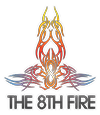table of contents
In many Indigenous cultures, healing is an individual journey and a communal endeavour.
The belief that the health of one reflects the health of all stands at the core of these societies. This blog post explores the profound role of community in the healing processes of Indigenous cultures, highlighting how this collective approach can offer lessons for our modern world.
Community as the Heart of Healing
Indigenous healing practices underscore that an individual’s well-being is deeply intertwined with the community’s health. Healing is often viewed as a collective responsibility involving the person and healer, family, friends, and the broader community.
Key Aspects:
- Collective Support: Emotional and spiritual support from the community plays a critical role in the healing process.
- Shared Wisdom: Healing practices are often communal events where knowledge and traditions are passed down and shared.
- Rituals and Ceremonies: Many Indigenous cultures use communal rituals and ceremonies as a key part of the healing process, reinforcing social bonds and communal harmony.
The Role of the Healer
In Indigenous communities, healers are spiritual guides, and community leaders. They bridge the physical and spiritual worlds, often involving the community in the healing rituals.
Healer’s Functions:
- Guidance: Providing spiritual and emotional guidance to the individual and the community.
- Mediator: Acting as a mediator between the individual, community, and the spiritual realm.
- Educator: Educating the community about health, wellness, and the importance of communal harmony.
Community Healing in Practice
Indigenous healing practices are rich and varied but share the common thread of community involvement. Examples include:
- Healing Circles are gatherings where community members come together to offer support, share experiences, and provide collective healing energy.
- Communal Rituals: Rituals and ceremonies that involve music, dance, storytelling, and prayer, fostering a sense of unity and collective well-being.
The Power of Connection
The communal approach to healing emphasizes the power of human connection. It recognizes that social bonds, communal support, and a sense of belonging are crucial for both mental and physical health.
Benefits:
- Emotional Support: The community provides a support network, reducing feelings of isolation and loneliness.
- Collective Resilience: A community facing challenges together builds resilience, empowering each member through shared strength.
- Holistic Wellness: Focusing on communal well-being encourages a more holistic view of health, considering emotional, spiritual, and social dimensions.
Lessons for Modern Healing
Modern healthcare can learn much from the Indigenous approach to communal healing. Emphasizing community involvement can bring a more holistic and empathetic dimension to healthcare.
Integrating Community in Modern Healing:
- Support Groups: Forming support groups for patients undergoing similar health challenges.
- Community-Based Healthcare: Encouraging community involvement in health and wellness programs.
- Social Health Initiatives: Implementing initiatives that recognize the impact of social and community factors on individual health.
Conclusion
The Indigenous approach to healing, deeply rooted in community and shared experience, offers invaluable insights into the nature of wellness. The 8th Fire embraces this wisdom, advocating for a holistic approach to health that acknowledges the power of community. By integrating these practices into our lives, we can foster a more compassionate, connected, and healthy society.
